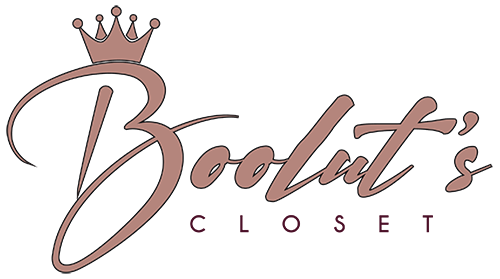- Rapid Shifts in Market Sentiment Prompt news24 Investigation into Inflations Grip on Household Finances
- Understanding the Core Drivers of Inflation
- The Impact on Essential Household Expenses
- Energy Costs and Their Ripple Effect
- Strategies for Mitigating Inflationary Pressures
- The Role of Monetary Policy
- Navigating the Future Economic Landscape
Rapid Shifts in Market Sentiment Prompt news24 Investigation into Inflations Grip on Household Finances
Recent economic indicators have sparked considerable concern among households and financial analysts alike. A noticeable escalation in the cost of essential goods and services, coupled with stagnant wage growth, is prompting a reassessment of financial strategies. news24 is initiating a comprehensive investigation into the escalating pressures on household finances due to pervasive inflation, aiming to provide clarity and actionable insights for consumers navigating these challenging times. The investigation will cover a broad spectrum of factors, from supply chain disruptions to monetary policy decisions, and their collective impact on everyday affordability.
Understanding the Core Drivers of Inflation
The current inflationary environment isn’t solely attributable to a single cause. A complex interplay of factors is at play, encompassing both demand-pull and cost-push dynamics. Supply chain bottlenecks, exacerbated by global events, have significantly restricted the availability of certain goods, driving up prices. Simultaneously, increased consumer demand, fueled by pent-up savings and government stimulus measures, has further intensified the pressure on prices. Understanding these foundational drivers is crucial for predicting the likely trajectory of inflation and formulating effective mitigation strategies.
The Impact on Essential Household Expenses
The escalating cost of living is acutely felt in the expenses that form the bedrock of household budgets. Groceries, energy, and transportation are among the sectors experiencing the most substantial price increases. This weight on essentials leaves less disposable income for discretionary spending, impacting leisure activities, savings, and future investments. Monitoring these key expense categories is paramount for individuals and families seeking to maintain their financial stability amidst inflationary headwinds. Careful budgeting and strategic purchasing choices are becoming increasingly important.
| Groceries | 12.5% |
| Energy (Electricity & Gas) | 25.8% |
| Transportation (Fuel) | 42.1% |
| Healthcare | 6.3% |
Energy Costs and Their Ripple Effect
The surge in energy prices is arguably the most visible and disruptive aspect of the current inflationary landscape. Geopolitical instability, coupled with increased demand as economies recover, has driven up the cost of oil and natural gas. This impacts not only home heating and transportation but also the production and distribution of countless other goods and services, creating a ripple effect throughout the economy. Businesses are forced to pass on higher energy costs to consumers, further fueling inflation. The transition to sustainable energy sources remains a long-term solution, but immediate relief requires a multifaceted approach including strategic energy reserves and increased domestic production where feasible.
Furthermore, the volatility in energy markets introduces a significant level of uncertainty for both households and businesses. Predictability is essential for financial planning and investment decisions, and the unpredictable nature of energy prices hinders these processes. Governments are exploring a range of interventions, including price caps and subsidies, but these measures often come with unintended consequences and can distort market signals. A sustainable and long-term solution hinges on diversifying energy sources and promoting energy efficiency.
Strategies for Mitigating Inflationary Pressures
While individuals have limited power to directly control inflationary forces, they can adopt several strategies to mitigate its impact on their personal finances. These include scrutinizing spending habits, prioritizing essential expenses, and exploring alternative options for goods and services. Diversifying investments and seeking out inflation-protected assets can also help safeguard wealth. Proactive financial planning and a willingness to adapt to changing economic conditions are essential for weathering the current storm.
- Budgeting and Expense Tracking: Meticulously track income and expenses to identify areas where spending can be reduced.
- Prioritize Needs Over Wants: Focus on essential expenses (housing, food, transportation) and postpone discretionary purchases.
- Comparison Shopping: Actively compare prices from different retailers to find the best deals.
- Reduce Energy Consumption: Implement energy-saving measures at home to lower utility bills.
The Role of Monetary Policy
Central banks play a crucial role in managing inflation through monetary policy tools such as interest rate adjustments and quantitative tightening. Raising interest rates can curb demand by making borrowing more expensive, but it also carries the risk of slowing economic growth. Quantitative tightening, which involves reducing the money supply, can also help to cool down inflation, but it can also lead to tighter credit conditions. Finding the right balance between controlling inflation and supporting economic growth is a delicate task that requires careful consideration of various economic indicators, some of those are shown in the table below.
Furthermore, the effectiveness of monetary policy is often subject to time lags. The full impact of interest rate changes may not be felt for several months, making it challenging for central banks to respond promptly to changing economic conditions. Communicating policy intentions clearly and transparently is crucial for managing market expectations and maintaining confidence in the central bank’s ability to maintain price stability.
- Interest Rate Hikes: Increase borrowing costs to reduce demand.
- Quantitative Tightening: Reduce the money supply to curb inflation.
- Forward Guidance: Clearly communicate future policy intentions to manage market expectations.
- Inflation Targets: Set explicit inflation targets to provide a benchmark for policy decisions.
Navigating the Future Economic Landscape
The current inflationary period presents a significant challenge for households and policymakers alike. While the situation is complex and uncertain, proactive financial planning, coupled with sound monetary and fiscal policies, can help to mitigate the worst of its effects. Ongoing monitoring of economic indicators and a willingness to adapt to changing conditions are essential for navigating the future economic landscape. Remaining informed and prepared will be critical for protecting financial well-being in the months and years to come.


